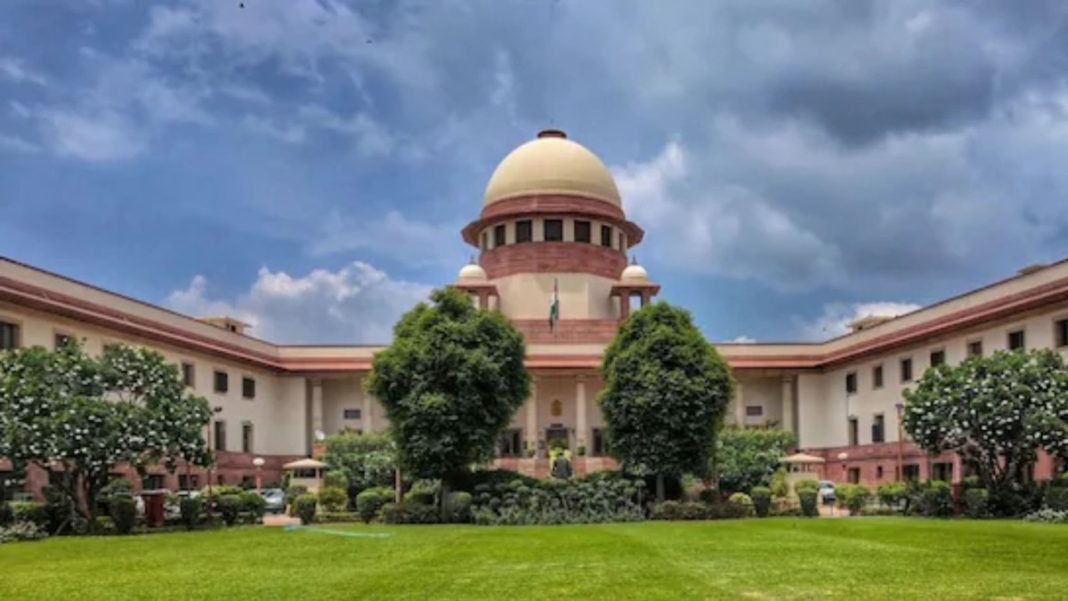The delicate balance between individual religious freedom and the unwavering secular ethos demanded of India’s armed forces has once again been underscored by a significant ruling from the Supreme Court. In a decision that resonates deeply within the military and legal circles, the apex court upheld the dismissal of a Christian Lance Naik from the Indian Army, finding him “misfit for a secular Army” due to his proselytizing activities. This judgment reiterates the paramount importance of unity and religious neutrality within a force tasked with safeguarding national security.
The Genesis of the Dismissal: Lance Naik Manish Kumar’s Case
The case revolves around Lance Naik Manish Kumar, a Christian officer serving in the Indian Army. Kumar’s troubles began when he was accused of distributing religious literature and attempting to convert fellow soldiers within his unit. Such actions are viewed with extreme seriousness within the disciplined environment of the armed forces, where maintaining communal harmony and religious neutrality is critical for operational effectiveness and troop morale. The Army initiated disciplinary action against Kumar, leading to a court-martial that found him guilty of violating military regulations.
Kumar challenged his dismissal, arguing that his actions were an exercise of his fundamental right to practice and propagate his religion, as enshrined in Article 25 of the Indian Constitution. His appeals traversed various legal forums, eventually reaching the Supreme Court. The core of the dispute lay in defining the boundaries of religious freedom for individuals serving in a unique, secular institution like the Indian Army, where individual rights often intersect with stringent institutional demands.
Supreme Court’s Rationale: Upholding Military Secularism
A bench of the Supreme Court, after careful deliberation, firmly rejected Kumar’s appeal, upholding the Army’s decision to dismiss him. The court’s reasoning centered on the distinctive nature of the Indian Army and the non-negotiable requirement of secularism within its ranks. The judges articulated that while individual soldiers are entitled to their personal faith, active proselytizing or attempting to convert fellow personnel can be deeply disruptive to the cohesion and communal harmony essential for a fighting force.
The Supreme Court observed, “The Indian Army is a unique institution, demanding absolute unity and camaraderie, where any activity that disrupts its secular fabric or promotes religious discord cannot be tolerated.” The bench further stated that such actions are “inimical to the core ethos of the armed forces.” This stance makes a clear distinction: merely practicing one’s religion is protected, but actively seeking to convert others within the military setup is deemed a breach of discipline and an undermining of the secular foundations of the institution.
The court emphasized that the dismissal was not a punitive measure against Kumar for being Christian, but rather for his actions of actively propagating his faith in a manner that was deemed detrimental to military discipline and the secular character of the unit. This judgment, therefore, serves as a powerful affirmation that the Army’s internal regulations regarding religious activities are not arbitrary but are vital for maintaining its integrity and operational effectiveness in a diverse nation like India.
Implications for Religious Freedom and Military Discipline
This Supreme Court ruling carries significant implications, reinforcing the long-held principle that while fundamental rights are sacrosanct, they are not absolute and can be reasonably restricted, especially in specialized environments like the armed forces. For military personnel, the judgment clarifies that personal religious observance is permitted, but proselytizing, which involves actively inducing others to change their faith, crosses a line that the Army and the judiciary deem unacceptable.
The Indian Army prides itself on its secular identity, where soldiers from all faiths serve together without discrimination, united by a common purpose. Regulations within the Army Act and Rules are designed to foster this unity and prevent any activity that could lead to religious friction or division. The court’s decision underscores the judiciary’s support for these regulations, recognizing them as essential for national security.
This case sets an important precedent, highlighting the delicate balance that must be maintained between individual liberties and institutional imperatives, particularly when national security is at stake. It sends a clear message that the secular fabric of the Indian armed forces is paramount and that actions perceived to threaten this foundational principle will face strict disciplinary action, upheld by the highest court in the land.
The Supreme Court’s decision unequivocally prioritizes the Army’s secular ethos and the need for absolute unity among its ranks. By upholding the dismissal of Lance Naik Manish Kumar, the court has reinforced the understanding that within the disciplined environment of the armed forces, actions that foster religious discord or undermine the spirit of secular camaraderie will not be tolerated, ensuring that the Army remains a cohesive and formidable force for the nation.




